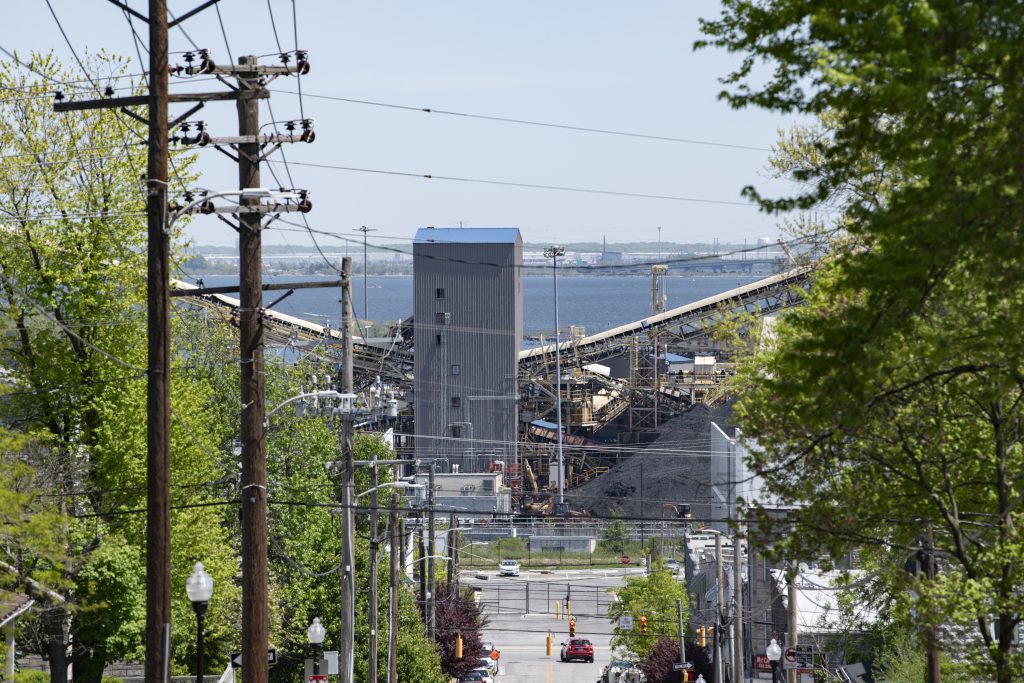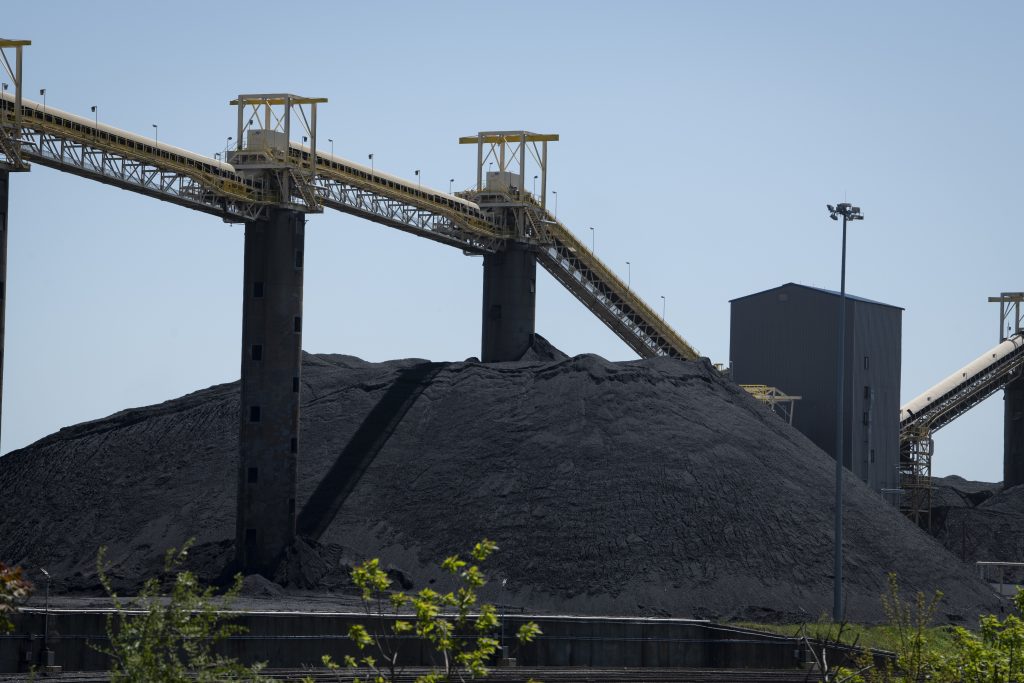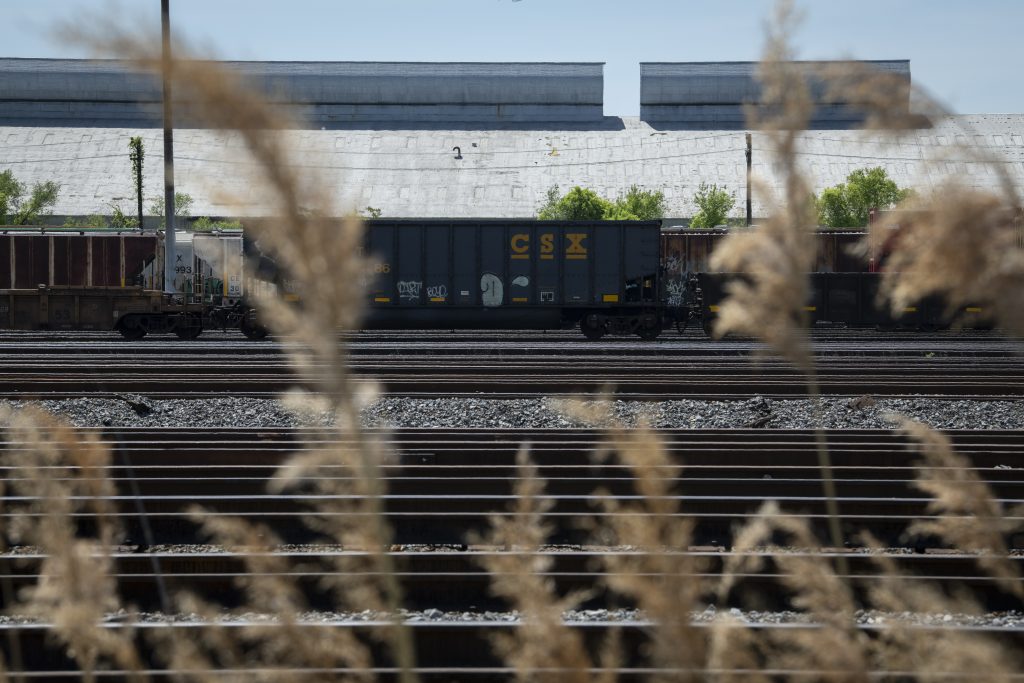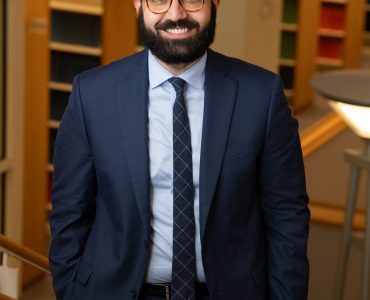
For some, climate change may seem like a far-off problem — a can that can be kicked down the road, something that is not impacting the average person in their day-to-day life.
But Shiladitya DasSarma, PhD, a professor in the Department of Microbiology and Immunology at the University of Maryland School of Medicine, knows that’s not true.
“Climate change is the defining issue of our time,” DasSarma, course director of the University of Maryland, Baltimore’s (UMB) new “Climate Change, Health, and Society” elective, said, adding, “Climate change is here. And for a long time, it used to be in the future. But as of the last few years, I think everyone can see it.”
Just look at the wildfire smoke in summer 2023 that originated in Canada but polluted air up and down the East Coast of the United States, said DasSarma, also a professor with the Institute of Marine and Environmental Technology in the University System of Maryland (USM).
“Especially in the last 10 to 15 years, it’s pretty clear that our environment is changing,” he said. “And unlike many of the problems in the past that we’ve dealt with … those came to an end or will come to an end soon. The distinction with climate change is that it’s just going to get worse.”
Through an interdisciplinary approach, students, faculty, and staff at UMB are taking part in the pilot elective this spring taught by 10 UMB faculty to collaborate on what they hope will be lasting change in Baltimore and beyond. The course aims to educate professional students on the physical science of the changing climate and expand upon that with the implications for human health and societies. The overarching goal of the course is to equip students with the knowledge to apply this information to their professional practice and to advocate for better laws and policies to help communities mitigate and adapt to climate change.
The course is open to students in the schools of law, medicine, nursing, and social work, as well as the Marine-Estuarine Environmental Sciences Graduate Program (MEES) — a USM program. This first class has 12 students who are from law, medicine, and MEES.
A Personal Connection
Garrett Posey, a second-year student at the University of Maryland Francis King Carey School of Law, hopes to go into housing law and work in legal services to help people who are unable to afford a lawyer otherwise.

On the surface, Posey said, it may not seem like housing law ties into climate change work. But he’s personally seen how tragedies that have occurred due to erratic weather patterns can directly impact someone’s home and life. In the last decade, Ellicott City’s Main Street had disastrous flooding that swept cars, front steps, and even humans away. Posey’s sister, although not physically injured, was directly impacted by one of the floods.
“One of the things that really helped me connect my own passion to the subject of this class [is] because it’s a class [that’s] really geared toward how we can fix a problem in Maryland that relates to climate change,” he said, adding his sister was not at home at the time of the 2018 flood but lived on the second floor of a house whose first floor was destroyed.
It’s events like this that hit close to home that deeply connected him to this type of class.
“A lot of people tend to get very depressed — very understandably — about climate change,” Posey said. About halfway through the course, students were asked how they were feeling about it all. “I feel betrayed more than anything else. And that’s really a call to action for me.”
Leonardo Marcello Soto, a student in the MEES Graduate Program who has a foundation in molecular and cellular biology, also felt personally drawn to take the class.
And, he said, all students should take a class like this.
“It’s really necessary for all students in all careers to know about climate change. … If you ask me, in the future I think at least a small class of climate change should be mandatory for all the universities, just because we’re seeing these trends of global warming [that will soon] be affecting us all.”
Soto, who was born in Cuba and lived in Peru before coming to America, spent time living in Miami before continuing his education in Maryland. But recently, when he went back to Miami to visit his father, he could tell climate change had impacted the area.
“I can say that the climate was totally different. … It was really bad — you couldn’t even walk on the street,” Soto said, adding that temperatures were regularly over 100 degrees.
For individuals like his dad, Soto said, who are dealing with health conditions, heat like he’s seeing in Miami can be extremely harmful to his health.
“Every year is hotter and hotter. People are just kind of numb [to it],” he added.
A Proactive Approach
A portion of this course focuses on training students for a future where climate change impacts health and the environment. This includes heat-related conditions like heatstroke and cardiac events, said Karin Russ, JD, MS, RN, interim director of legal affairs at the University of Maryland School of Nursing and co-director of the course.
“Heat and heat-related disease go hand in hand. What people may not fully realize is that there’s the societal effects. … As temperatures rise across the globe, as the ocean temperatures rise, the air currents change. And this creates more volatile atmospheric conditions that give us things like Hurricane Katrina, Hurricane Sandy, heavy rains in California with accompanying mudslides. All of those are indirect threats to human health.
“These indirect effects are in addition to direct effects of air pollution associated with burning greenhouse gases and particulates: cardiovascular and pulmonary disease, kidney disease, and even negative reproductive health effects.”

During the course, students have had the opportunity to interact with external community members from Baltimore and beyond to flesh out their conversation. Earlier in the semester, they had a visit from scientists with the National Oceanic and Atmospheric Administration’s Air Resources Laboratory and Air Resources Car, which is able to perform mobile measurement surveys to look for major greenhouse gasses and some air pollutants in the area.
Students participated in three panels that focused on climate, health, and society at UMB during April.
The Climate Stakeholders Panel featured experts from state and federal agencies discussing the intersection of science and policy; the Climate Community Panel shared examples of successful approaches used in the city of Baltimore, the state of Maryland, and the university town of Cambridge, Mass.; and the Climate Advocacy Panel addressed ways to publicly support and advocate for change, through the lens of a variety of professions and industries that interact with legislation and policies.
But students aren’t just focusing on reacting to these changes and working to help those impacted by them. They’re also looking toward the future to make tangible local change.
Soto and Posey are part of a group in class whose final project focuses on the Curtis Bay neighborhood in Baltimore and the environmental and health impact from the CSX coal terminal nearby.
“The data certainly indicates that [the coal facility] is a significant contributing factor to the high levels of particles in the air around that community,” Posey said. “A certain kind of the particles — the very small ones — are so dangerous to human health that there is not any recognized safe level of them.”
People who live in Curtis Bay wake up and find coatings of coal dust on their homes, on their walls, and on their cars, he said. Ultimately, Posey said, the goal he, Soto, and other students working on this specific project in the class have is to take their final paper and use the conclusions from it to help get the CSX facility’s permit revoked.
“It’s tough, right? Because this [conversation] takes place at the center of a really long-standing debate in the United States about economics, and how they relate, and the rights to operate businesses on your own property versus the value of human life,” Posey said. “And in my mind, the value of human life takes precedence. Now, I think, in a perfect world, both would coexist together. … [But] I just don’t think that’s realistic at this point.”
Looking Toward the Future
As part of this pilot program, UMB is creating internships funded by UMB Provost Roger J. Ward, EdD, JD, MSL, MPA, for students to continue the work began in this semester’s course. The UMB Provost Climate Health & Resiliency Awards for summer 2024 are available and will be used for implementing innovative solutions to the climate crisis and furthering UMB’s commitment to its core values of Well-Being and Sustainability.
The summer internships will follow the inaugural offering of the course in spring 2024 and help train students to become future leaders in addressing climate change in Maryland. The summer internships also will aid in the professional development of students in UMB’s science, health, and law programs. And the hope is to expand this education to beyond just an elective, Russ said.
“When we talk about what more needs to be done in this course, we talk a lot about the twin goals of adaptation and mitigation,” Russ said.
What this means, she added, is that society will need to figure out how to survive in changing conditions. This includes finding ways to lessen disease and lessen the loss of human life through measures like wellness checks for vulnerable people, community cooling and heating centers, and programs that provide homes with free air conditioning.
But it’s not enough just to react.
“Mitigation is trying to slow or mitigate how quickly the climate is changing. This can be accomplished through individual and collective actions that reduce greenhouse gas emissions and increase carbon ‘sinks,’ or natural features that capture and store carbon,” Russ said. “That is actually what we spend a fair amount of time on our course. We’re still in the midst of temperatures climbing. And so, if we as a society can slow that change, we will all be better off.”
Students interested in an internship should contact Dr. DasSarma at sdassarma@som.umaryland.edu.



